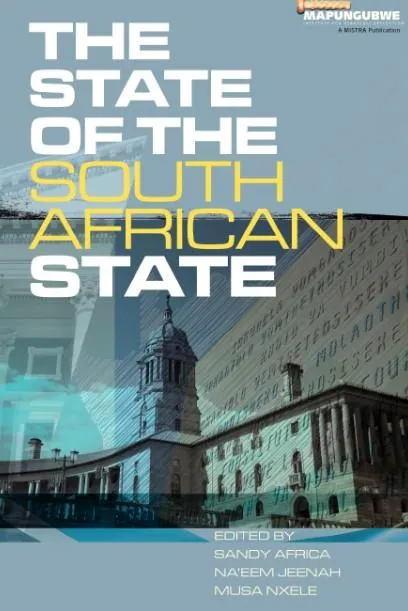MISTRA report warns State at crossroads, calls for ethical and capable governance
ECONOMY

Launched this week, the book titled “The State of the South African State: Capacity, Capability and Ethics” provides a comprehensive assessment of the performance and resilience of South Africa’s public institutions three decades into democracy and just over a year after the formation of the Government of National Unity (GNU).
Image: Supplied
South Africa’s public institutions remain caught between resilience and decay, according to a new study by the Mapungubwe Institute for Strategic Reflection (MISTRA), which warns that rebuilding State capability will require decisive reforms, ethical leadership, and renewed public trust.
Launched this week, the book titled “The State of the South African State: Capacity, Capability and Ethics” provides a comprehensive assessment of the performance and resilience of South Africa’s public institutions three decades into democracy and just over a year after the formation of the Government of National Unity (GNU).
The publication follows MISTRA’s previous flagship works — Essays on the Evolution of the Post-Apartheid State, 20 Years of South African Democracy: So Where to Now?, and the Indlulamithi South Africa Scenarios 2030 and 2035 — and forms part of a long-term effort to evaluate the country’s governance trajectory from transition to transformation.
Drawing on extensive research and analysis by leading scholars in governance, political economy, and international relations, the latest book examines the State’s ability to deliver services, maintain fiscal discipline, promote ethical leadership, and engage meaningfully with civil society.
It also explores how coalition politics, weak economic growth, and governance failures have deepened public frustration.
“Our commitment as government to driving inclusive growth, reducing poverty and tackling the high cost of living must go hand in hand with building a capable, ethical and developmental state,” said Maropene Ramokgopa, Minister in the Presidency for Planning, Monitoring and Evaluation, speaking at the book’s launch.
While acknowledging South Africa’s progress in expanding access to housing, electricity, and social grants since 1994, the book finds that the quality, efficiency, and sustainability of public services have deteriorated.
It cites weak leadership, skills shortages, fiscal strain, and corruption as major obstacles to progress, despite ongoing efforts to professionalise the public sector and restore institutional integrity.
Delivering the keynote address, Professor Somadoda Fikeni, chairperson of the Public Service Commission, described the South African State as standing “at a crossroads.”
“The report invites us to reflect on the moral and institutional foundations of our democracy,” Fikeni said.
“The South African state carries within it both the seeds of renewal and the scars of decay. To rebuild, we must restore the moral and professional core of the public service and cultivate leadership that places national interest above factional or personal gain.”
MISTRA’s findings offer practical policy recommendations to rebuild the State’s capability and legitimacy.
These include strengthening merit-based appointments, professionalising the civil service, expanding digital governance, improving intergovernmental coordination, and deepening partnerships between government, business, and civil society.
Dr Sandy Africa, MISTRA’s director of research, said the study revealed that reforming the State required more than rooting out corruption.
“Rebuilding state capability is about rethinking how the state is organised, how it collaborates with society, and how it restores purpose and integrity in governance,” she said. “Despite the challenges, there is room for optimism. The evidence shows that renewal is possible with decisive reform, professional leadership and public trust.”
The book highlights the role of South Africa’s vibrant civil society in advancing reform and calls for continued collaboration among state institutions, academia, business, and citizens to co-create solutions that restore confidence in government.
MISTRA said it expects The State of the South African State to become a key reference for policymakers, researchers, and citizens seeking to understand and strengthen the country’s governance framework.
BUSINESS REPORT